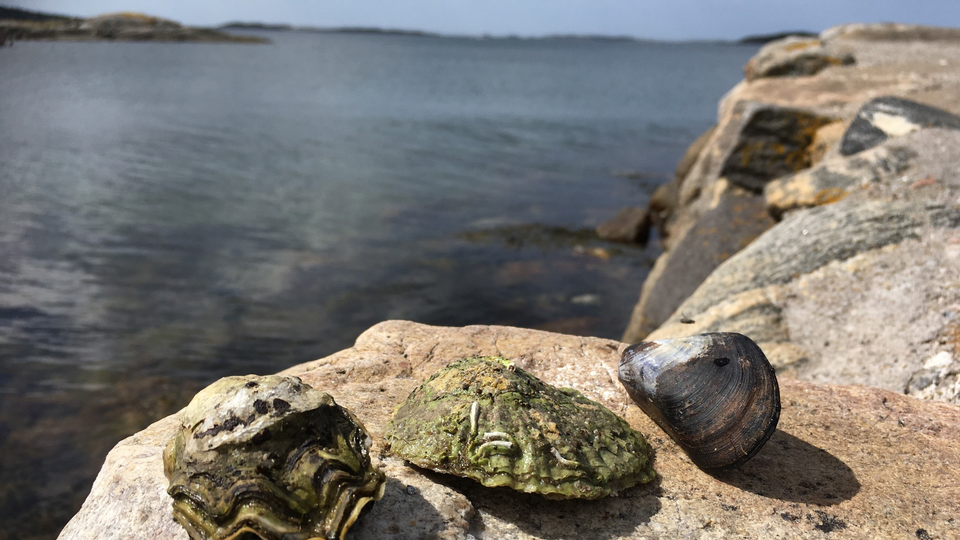
Status and management of Swedish bivalve populations
In recent years, blue mussel populations have declined in many parts of the world including in Europe. Observations indicate a similar trend in Sweden, but knowledge of the historical and current distribution of blue mussels as well as oysters in Sweden is limited.
Mussel and oyster beds are important habitats for many other species in coastal ecosystems. IVL investigates the status of the Swedish bivalve populations, including identifying possible threats and evaluating methods for how to protect and manage bivalve populations.
In the “Bivalve project” IVL gathers knowledge for assessing the biological value of bivalve populations by mapping historical and current distribution and analyzing genetic variation between different local populations. The project also evaluates different management methods to strengthen native bivalve populations and investigates how alien species, such as the Pacific oyster (Magallana gigas), may impact native bivalve populations.
Researchers in Europe believe that the decline in blue mussels is due to climate change rather than competition with alien species. But knowledge is limited about how the Pacific oyster affects the native oyster (Ostrea edulis), which is also being investigated in the project.
The results from the project will form an important basis for developing sustainable management plans for oyster and mussel populations in Sweden.
Contact
Want to know more about IVL's services and offers? Enter your email address and choose which area you want to know more about, and we will get back to you.
NOTE! For questions about vacancies and thesis work, go to the Careers
tab in the main menu.
